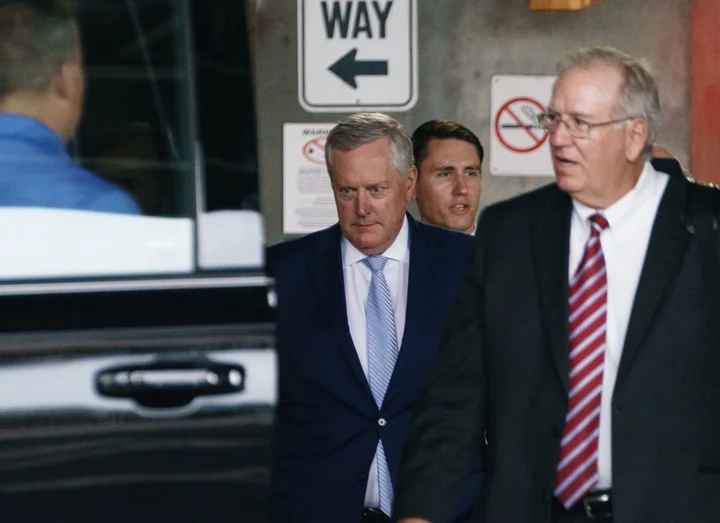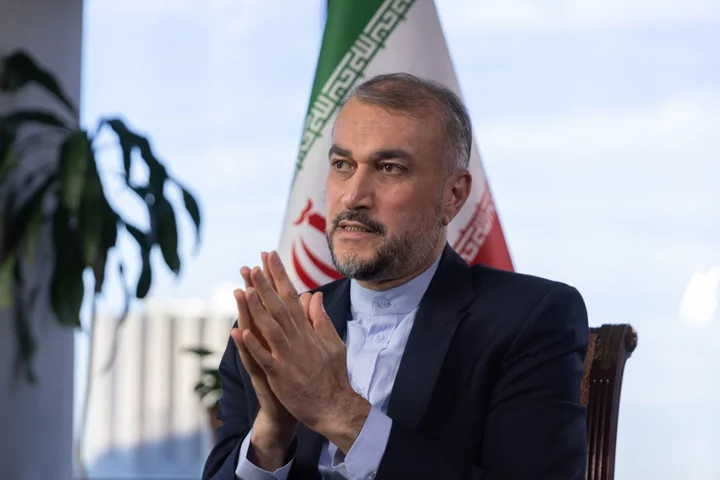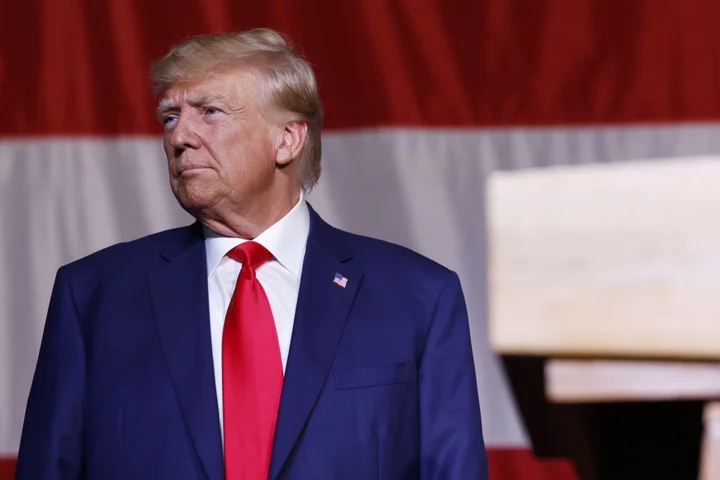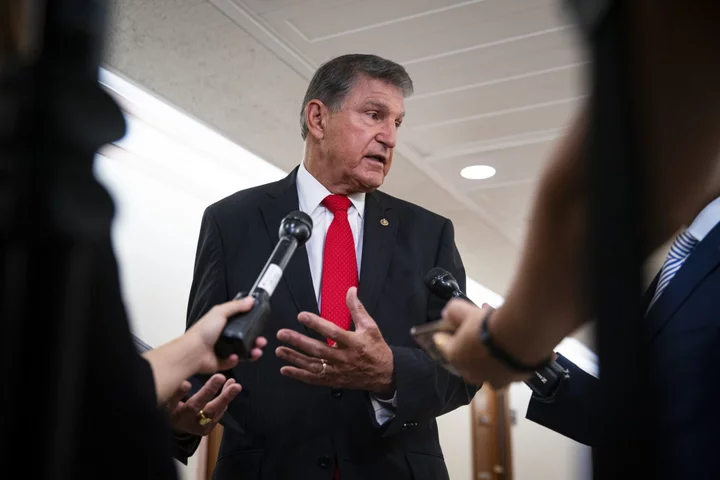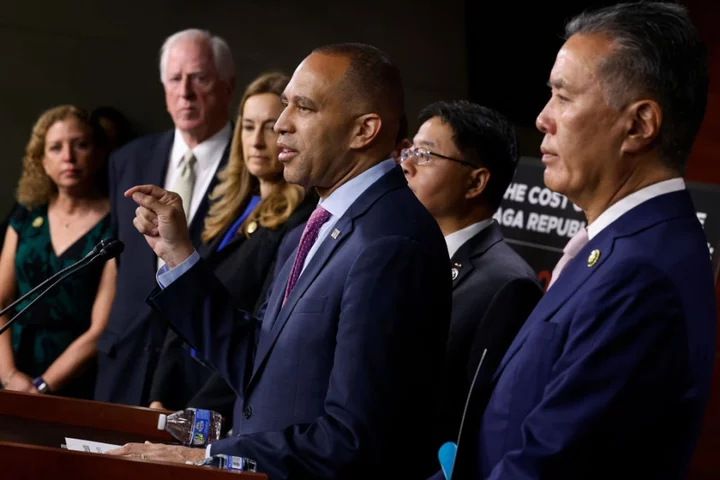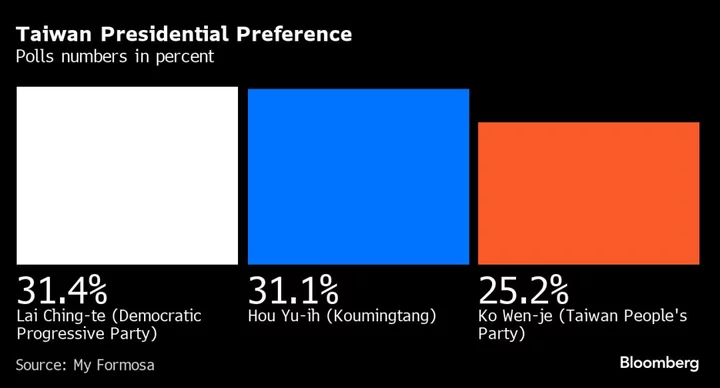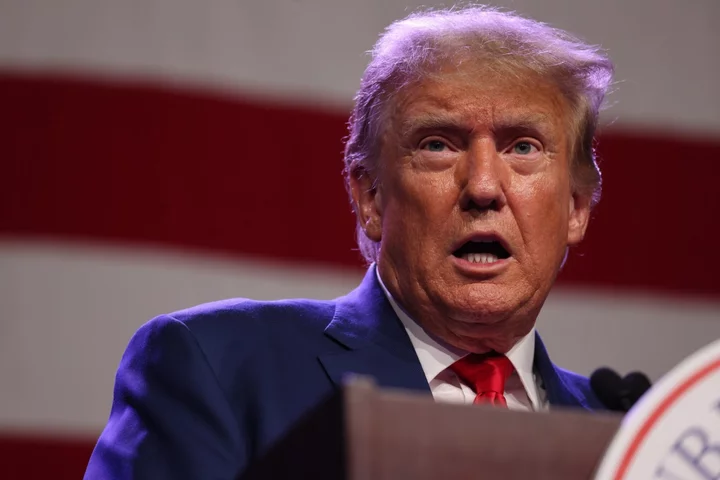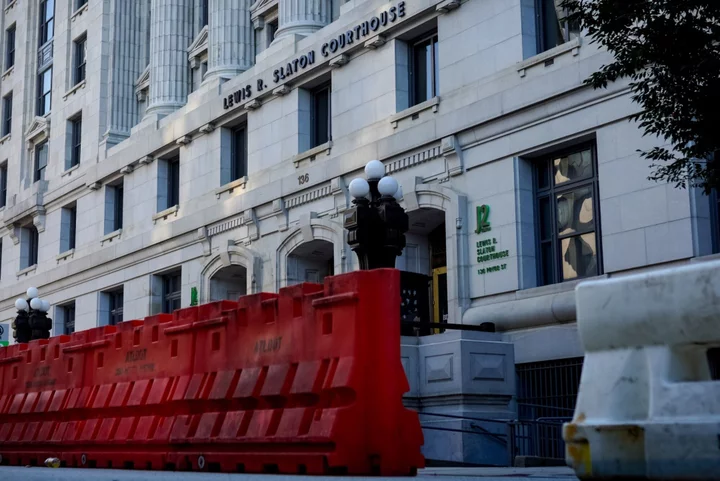A federal judge ruled that Mark Meadows wasn’t acting within the scope of his duties when he joined efforts to reverse Donald Trump’s loss at the ballot box in 2020, dealing a blow to the former White House chief of staff as he faces state criminal charges in Georgia.
US District Judge Steve Jones in Atlanta on Friday denied Meadows’s request to transfer the case to federal court from state court. Had the request been granted, Meadows could have argued that he was immune from state prosecution because his actions related to his job.
Jones ruled that the request to transfer hinged on whether a president’s chief of staff can challenge the result of an election as part of their job. The judge said Meadows didn’t have a role to play in Georgia’s presidential election because the US Constitution delegates voting to the states.
“It would be inconsistent with federalism and the separation of powers to find that activities which are delegated to the states are also within the scope of executive power,” the judge said in a footnote of his ruling.
Shortly after the judge ruled, Meadows filed a notice at the district court that he’s appealing to the US 11th Circuit Court of Appeals in Atlanta.
Fulton County District Attorney Fani Willis charged Meadows, Trump and 17 others on Aug. 14, accusing the group of violating Georgia’s racketeering law by participating in a “criminal enterprise” to keep Trump in office after his loss to Joe Biden was repeatedly verified.
Trump has not said yet whether he will seek to have his case moved to federal court.
Meadows testified on Aug. 28 during a hearing in federal court in Atlanta to consider his removal request. He and his lawyers argued the case against him should be moved because the alleged conduct was connected to his job. Meadows said the actions he carried out were all part of his responsibilities as a White House official, even if they appeared at times to be political in nature.
“I don’t know that I did anything that was outside my scope as chief of staff,” Meadows said.
Meadows testified that Trump told him to set up the infamous call with Georgia Secretary of State Brad Raffensperger, when Trump urged him to “find” enough votes for him to defeat President Biden in the state.
Willis argued in court filings that neither Trump nor Meadows had legal authority to take actions regarding the administration of a presidential election, which is the responsibility of state officials. The Meadows indictment, Willis argued, “is the result of activities taken by him solely to advance the personal and electoral interests of Donald J. Trump.”
The judge said he wasn’t convinced by Meadows’s testimony.
“Meadows was unable to explain the limits of his authority, other than his inability to stump for the president or work on behalf of the campaign,” Jones said in the ruling. “The court finds that Meadows did not adequately convey the outer limits of his authority, and thus, the court gives that testimony less weight.”
The judge agreed with the state that the federal Hatch Act prohibits executive branch employees from engaging in political activity, though the Jones didn’t weigh in on whether Meadows violated that law by getting involved in states’ post-election activities and election results
“These prohibitions on executive branch employees (including the White House Chief of Staff) reinforce the court’s conclusion that Meadows has not shown how his actions relate to the scope of his federal executive branch office,” the judge said.
Four other defendants also want their case heard in federal court: former Justice Department official Jeffrey Clark; former Georgia Republican Party Chairman David Shafer; state Senator Shawn Still; and former Coffee County Republican Chairwoman Cathy Latham. Shafer, Still and Latham were among the 16 fake electors who falsely certified Trump won the election, Willis alleges.
(Updates with Meadows appealing in fifth paragraph.)

